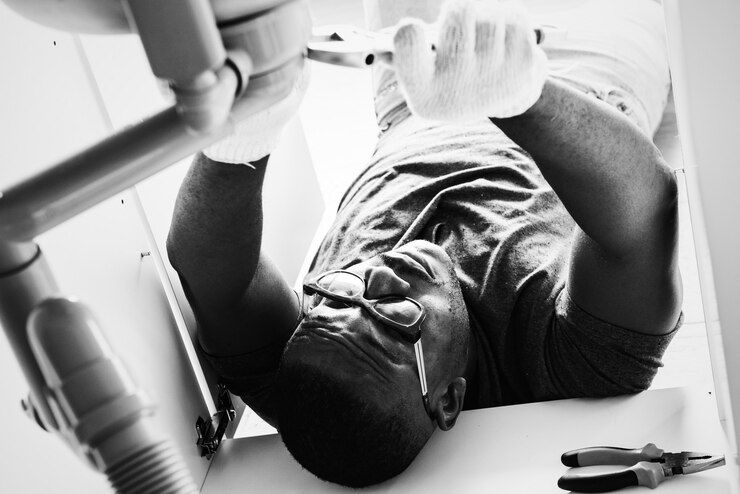5 Best Plumbing Maintenance Tips for Homeowners
Maintaining your home's plumbing might not be the most glamorous task, but trust me, it's one of the smartest things you can do as a homeowner. Imagine waking up to a leak-free, smoothly running system, saving you from unexpected and costly repairs down the road. Whether you're a seasoned DIY enthusiast or just starting to dabble in home maintenance, these practical plumbing tips will help you keep everything in tip-top shape. Let's dive in and make sure your plumbing system is ready to handle whatever comes its way!
Regularly Inspect for Leaks
Catching leaks early can save you a lot of headaches and money. Start by checking under sinks, around toilets, and near appliances like dishwashers and washing machines for any signs of moisture or water stains. Don't forget to inspect exposed pipes in basements and crawl spaces. Another handy tip is to monitor your water meter for unexplained spikes in usage, which can indicate hidden leaks. If you spot a leak, address it promptly by tightening connections or replacing faulty parts. And remember, for more complex issues, don't hesitate to call a professional plumber to avoid bigger problems down the line.
- Check under sinks for moisture or water stains.
- Inspect around toilets for any leaks or dampness.
- Look near appliances like dishwashers and washing machines.
- Examine exposed pipes in basements and crawl spaces.
- Monitor your water meter for unexplained spikes in usage.
- Tighten connections or replace faulty parts if you find a leak.
- Call a professional plumber for complex issues.
Stop Treating Your Drains Like A Garbage Bin
It's tempting to treat your drains like a convenient disposal system, but doing so can lead to serious clogs and plumbing issues. Avoid pouring grease, coffee grounds, and food scraps down the kitchen sink, as these materials can build up and block your pipes. Similarly, in the bathroom, steer clear of flushing hair, dental floss, and hygiene products down the toilet or sink. By being mindful of what goes down your drains, you can prevent blockages and keep your plumbing system running smoothly. Always dispose of waste properly and consider using drain screens to catch debris before it causes problems.

Maintain Water Heater
Keeping your water heater in good condition is crucial for its efficiency and longevity. Start by checking the temperature setting; 120°F is optimal for both performance and safety. Annually, flush the tank to remove sediment buildup that can hinder efficiency. Inspect the anode rod periodically and replace it if it’s corroded to prevent tank rusting. Regular maintenance ensures your water heater operates efficiently, providing you with consistent hot water while extending the appliance's lifespan.
Test Water Pressure
Proper water pressure is essential for the health of your plumbing system. Too high, and it can stress pipes and fixtures; too low, and it can affect your water flow. Use a pressure gauge to test the water pressure at the main valve, aiming for a range between 40-60 psi. If necessary, adjust the pressure regulator to maintain this balance. Regular testing can help you catch and correct pressure issues before they cause significant damage or inconvenience.
Know the Location of Shut-Off Valves
Knowing where your shut-off valves are located is vital for quickly stopping water flow in emergencies, such as a burst pipe or major leak. Identify the main water shut-off valve and ensure it’s accessible. Familiarize yourself with individual shut-off valves for sinks, toilets, and appliances. Periodically test these valves to make sure they’re functioning correctly. Educate all household members on their locations and operation, so everyone knows how to act swiftly in an emergency, potentially saving your home from severe water damage.
Call All City Plumbers
When it comes to maintaining your plumbing system, there's no substitute for expert advice and service. Whether you're dealing with persistent leaks, struggling with water pressure issues, or needing routine water heater maintenance, All City Plumber is your go-to solution. Our experienced professionals are equipped to handle all your plumbing needs, providing prompt, reliable service to keep your home running smoothly. Don't wait until small issues become big problems – call All Things Plumber today and ensure your plumbing is in top shape!











